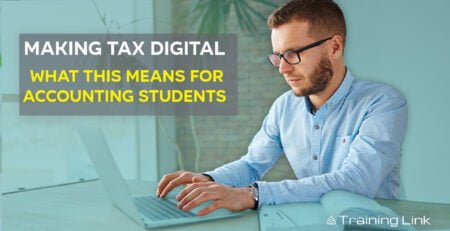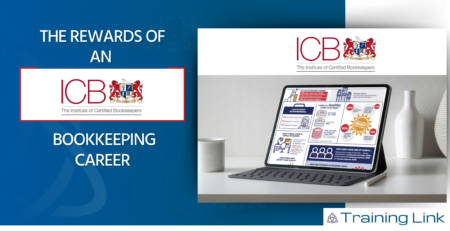Top Tips on Writing Your CV
The importance of writing a great CV is often underestimated. Regardless of your background or beliefs, first impressions matter. In fact, it takes just one-tenth of a second for us to judge someone and make a first impression.
When applying for jobs, your CV is going to make up, at least in part, an initial impression of you; therefore it is one of the most important things to get right.
Let’s consider writing a CV for an accounting position. It is important to cover various topics within a CV, from covering previous roles, to discussing your personal interests and what you do outside of work.
Personal information
This is where you include your basic information. This makes it clear right from the start who you are, and gives the reader the information that they need to contact you.
You should include:
- Full name
- Email address
- Telephone number
- Address
If you wish, you can include information like your date of birth, marital status, or even add a picture, but this isn’t necessary or required, as you are protected by ‘Employment Equality Regulations’ against age, race, sexual orientation and other kinds of discrimination.
Personal statement
This is generally regarded as the most important part of your CV. An engaging personal statement can mean the difference in the prospective employer wanting to read on, or simply “filing” your CV.
In this section you need to summarise yourself in a way that makes you stand out as the perfect candidate for the role advertised.
The primary task is to summarise your best professional features. This must be done as succinctly as possible; ideally into around 50 words. As in most professional fields, employers are looking for the right qualifications, experience and skills. So, for an accounting position it would be reasonable to say that you would include things like being ACCA or AAT qualified, having worked as a Bookkeeper for 2 years, and having excellent data analysis skills.
Key skills
This section is where you would list the skills that make you ideal to the role. Financial employers are usually looking for the following skill types:
- Sound analytical skills – problem solving and logical thinking
- Good IT skills – experience of relevant software like Sage and Excel
- Communication skills – the ability to transfer technical information to clients and others who don’t have financial knowledge
Try not to use platitudes; try to be unique in your approach and write something that makes you stand out from the crowd. Never assume that your CV will be the only one that the employer reads that day, so it’s very important that you’re not the 50th person with “good interpersonal skills” with “the ability to work as part of a team”.
Qualifications
This section is where you will show your expertise through your professional accounting qualifications. When documenting your qualifications, list your most recent first. This section might look something like this:
- 2015-2016: AAT (Level 3) Advanced Diploma in Accounting – Training Link
- 2014-2015: AAT (Level 2) Foundation Certificate in Accounting – Training Link
- 2013-2014: Completed ‘A’ Levels at ‘A.N. Other’ High School, attaining:
- Maths (B)
- English (A)
- French (B)
- Economics (A)
- Physics (A)
As we’re writing a CV for an accounting job, your professional certifications must take priority. Therefore, if you’re AAT, CIPFA, CIMA, ACCA, or ACA qualified, you need to make sure this is clearly visible at the top of the list.
Unless you’ve recently left full time education, employers won’t usually be interested in your first school. Furthermore, if you have a degree or any other noteworthy professional qualifications specifically related to the position, you might not even need to include GCSEs or A Levels (although it never hurts to include them if there is space).
This is also considered good practice to highlight if you’re a member of any professional body (for example, “Member of the Chartered Management Institute”).
Employment history
Depending on how long you’ve been in employment, it is not necessary for you to include every position you’ve held since leaving school.
If applicable, only include the roles in which the skills and responsibilities that you used are transferable to the role being applied for.
For example, if you’ve previously held positions as a Sales Ledger Clerk, a Payroll Agent and a retail assistant in your local store, there’s no need to include the information about the retail assistant’s role (unless it’s relevant, which in this case, it isn’t).
The best way to illustrate your employment history is to include the job title, start and leaving date and then a brief summary of your responsibilities and achievements.
Personal Interests/Hobbies
Whilst not particularly important, this is your chance to personalise the document, and show that what you’re interested in supports your professional development.
It’s also a good opportunity for you to make up for and gaps in your work experience. For example, if you haven’t held a management or leadership role previously, noting that you were the captain of a sports team demonstrates leadership skills, and that you can organise a team. This is a transferable skill that prospective employers would value in an applicant.
Try to add something that might be slightly unusual, or less common. Most people like socialising or walking, but fewer could boast at being a black belt in karate, or being a prize winning botanist!
References
For obvious reasons, these are very important to get right. A reference is the point of contact between your prospective employer and a previous employer/tutor etc. References are used to confirm your skills and suitability to the role that you have applied for.
It’s never advisable to include family members in this section, as they will be biased. If possible, include your last two employers.
If this will be your first professional role, include contacts that have played a significant role in your education. For example, your AAT tutor and your Head of Sixth Form would make suitable references.
Give their full name, job title, contact information, company/business address and telephone number.
Before submitting your CV, it is very important that you carefully review what you’ve written. It is also considered good practice that you ask someone who you trust to read it over and give their honest opinion.
This is your chance to shine, and show the reader what makes you different from other applicants!
Last but not least, it is important to recognise that the CV is just the key to the door. If you’re lucky enough to secure an interview, your CV (and as an extension, you) will be scrutinised, so above all, BE HONEST!! It’s no good stating that you’re an expert in Sage 50 if you’ve never used it!











